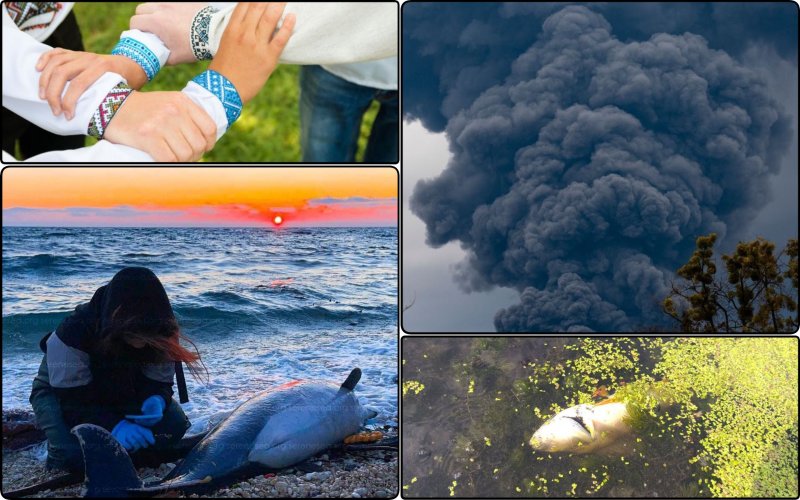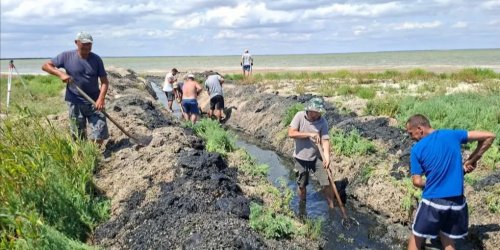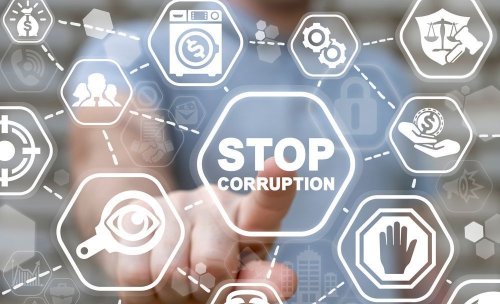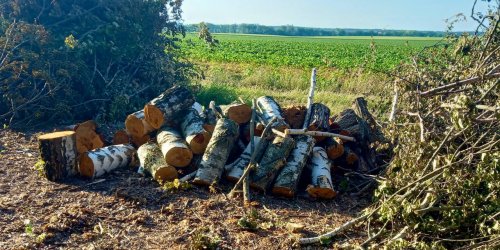In 2023, specialists of the Special Environmental Prosecutor's Office registered more than 4,000 criminal proceedings, of which almost 30% have already been sent to court with indictments.
Among them are cases against 15 organized criminal groups and 63 cases related to corruption, said the deputy head of the SEP Oleksandr Maleev at the national annual congress of environmentalists: "Environmental safety of business-2023. Communities in environmental restoration".
He emphasized that the department has been functioning for only one and a half years, because the previous environmental protection prosecutor's office was liquidated during the reform.
Maleev said that the full-scale war forced the SEP to change certain priorities. Thus, the department created a separate department that deals with environmental crimes in the field of war, which had never happened before.
He emphasized that, among other things, the SEP investigates ecocide and large-scale environmental crimes related to the war. Thus, for the first time during the years of Ukraine's independence, an indictment was sent to the court against the management of one of the enterprises for committing ecocide. Thus, in the Khmelnytskyi region, 4 km of the river was polluted, which led to the disappearance of river flora and fauna and made it impossible to reproduce the ecosystem.
Maleev noted that for the first time it was possible to convict a general and a lieutenant colonel of the Russian armed forces who were involved in violating the laws and customs of war. We are talking about the undermining of the North Crimean Canal. The criminals were sentenced to 12 years of imprisonment and the recovery of damages.
"But, unfortunately, we can only dream about real recovery of these losses," he said.
According to him, the environmental prosecutor's office deals not only with procedural management in criminal proceedings. Thus, in 2023, it was possible to:
- file almost 500 lawsuits;
- to return to the "Unava" tract a land plot with an area of 777 hectares, which was removed from state property through fraudulent actions and official crimes;
- to prevent the unjustified collection from the budget of more than a billion hryvnias, which the private enterprise demanded from the state for allegedly arbitrary extraction of minerals.
Maleev emphasized that the SEP also initiates and supports certain legislative changes. For example, in Ukraine, there is no methodology for calculating the amount of damages for the recovery of damages for emissions into the atmospheric air from non-stationary sources. Thus, in Odesa, for a fire at a solid household waste dump, the management of the utility company that serves it will bear administrative responsibility and pay UAH 1,700.
"If this is an emergency situation, the State Environmental Inspection can apply the methodology. But in order for the situation to become extraordinary, the landfill must burn for a long time, he said. – We consider these issues almost every day, almost every day we propose some changes."
According to him, there is an incompleteness in the current legislation. But this is not someone's fault or the negligence of former officials. After all, these issues are raised only when they are directly confronted.
Maleev noted that, for example, catching crayfish within the nature reserve is 10 times cheaper than in an ordinary river.
"I am sure that it happened unintentionally. When we face this, it is both funny and painful," he said, adding that the SEP cooperates fruitfully with the State Inspectorate and the Ministry of Environmental Protection and Natural Resources.
Earlier, EcoPolitic wrote, that in June 2021 in Ukraine created the Specialized Environmental Prosecutor's Office, which, within its powers, takes care of countering crimes against the environment.
As EcoPolitic previously reported, in Ukraine, for the first time in the years of independence, an indictment was sent to the court based on the fact committing ecocide, namely, a massive sea in the tributary of the Sluch River. Two employees of a heating water supply company in Khmelnytskyi region are accused of poisoning water resources with industrial discharges from cardboard and paper production.





